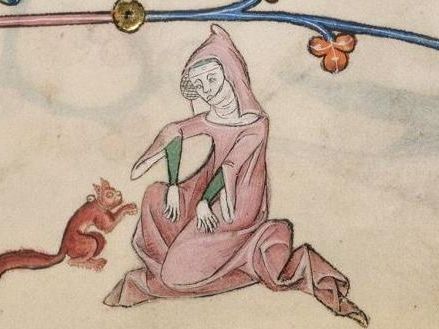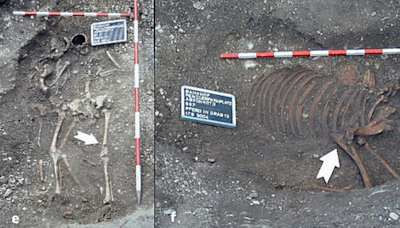Search results
A stained glass panel from Canterbury Cathedral, c. 1175 – c. 1180. It depicts the Parable of the Sower, a biblical narrative. In the history of Europe, the Middle Ages or medieval period (also spelt mediaeval or mediæval) lasted approximately from 500 AD to 1500, although some prefer other start and end dates. The Middle Ages is the second of the three traditional divisions of Western ...
Apr 19, 2024 · Summarize This Article. Middle Ages, the period in European history from the collapse of Roman civilization in the 5th century ce to the period of the Renaissance (variously interpreted as beginning in the 13th, 14th, or 15th century, depending on the region of Europe and other factors). A brief treatment of the Middle Ages follows.
- The Editors of Encyclopaedia Britannica
- When did the Middle Ages begin?The Middle Ages was the period in European history from the collapse of Roman civilization in the 5th century CE to the period of the Renaissance (...
- What was the role of Christendom?After the dissolution of the Roman Empire, the idea arose of Europe as one large church-state, called Christendom. Christendom consisted of two dis...
- How long did the Migration Period last?The Migration Period was a historical period sometimes called the Dark Ages, Late Antiquity, or the Early Middle Ages. The period lasted from the f...
- What were the major artistic eras of the Middle Ages?Romanesque art was the first of two great international artistic eras that flourished in Europe during the Middle Ages. Romanesque architecture eme...
- What socio-economic system is perceived as characteristic of the Middle Ages?Feudalism designates the social, economic, and political conditions in western Europe during the early Middle Ages, the long stretch of time betwee...
Apr 22, 2010 · The Middle Ages is the period of European history between the fall of Rome in 476 CE and the beginning of the Renaissance in the 14th century. Learn about the rise and fall of the Catholic Church, the Islamic world, the Crusades, art and architecture, and more from this comprehensive overview by History.com.
- 3 min
Edward Peters Michael Frassetto. History of Europe - Medieval, Feudalism, Crusades: The period of European history extending from about 500 to 1400–1500 ce is traditionally known as the Middle Ages. The term was first used by 15th-century scholars to designate the period between their own time and the fall of the Western Roman Empire.
- DictionaryMe·di·e·val/ˌmēd(ē)ˈēv(ə)l/
adjective
- 1. relating to the Middle Ages: "a medieval castle"
Medieval civilization reached its apex in the 13th century with the emergence of Gothic architecture, the appearance of new religious orders, and the expansion of learning and the university. The church dominated intellectual life, producing the Scholasticism of St. Thomas Aquinas. The decline of the Middle Ages resulted from the breakdown of ...
May 25, 2023 · Learn how medieval Europe was not a time of darkness, filth, and superstition, but a period of innovation, diversity, and culture. Discover the truth behind four common misconceptions about the Middle Ages, from hygiene to astronomy.
People also ask
What does the Middle Ages tell us about the Renaissance?
When was the Middle Ages?
Why is the Middle Ages called a medieval era?
What is the medieval period called?
Dec 6, 2023 · Petrarch, an Italian poet and scholar of the fourteenth century, famously referred to the period of time between the fall of the Roman Empire (c. 476) and his own day (c. 1330s) as the Dark Ages. Petrarch believed that the Dark Ages was a period of intellectual darkness due to the loss of the classical learning, which he saw as light.





